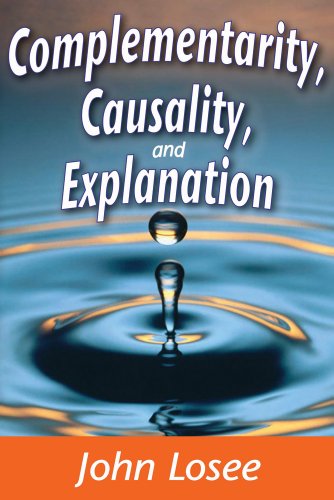

Most ebook files are in PDF format, so you can easily read them using various software such as Foxit Reader or directly on the Google Chrome browser.
Some ebook files are released by publishers in other formats such as .awz, .mobi, .epub, .fb2, etc. You may need to install specific software to read these formats on mobile/PC, such as Calibre.
Please read the tutorial at this link: https://ebookbell.com/faq
We offer FREE conversion to the popular formats you request; however, this may take some time. Therefore, right after payment, please email us, and we will try to provide the service as quickly as possible.
For some exceptional file formats or broken links (if any), please refrain from opening any disputes. Instead, email us first, and we will try to assist within a maximum of 6 hours.
EbookBell Team

0.0
0 reviewsPhilosophers have discussed the relationship of cause and effect from ancient times through our own. Prior to the work of Niels Bohr, these discussions presupposed that successful causal attribution implies explanation. The success of quantum theory challenged this presupposition. Bohr introduced a principle of complementarity that provides a new way of looking at causality and explanation.
In this succinct review of the history of these discussions, John Losee presents the philosophical background of debates over the cause-effect relation. He reviews the positions of Aristotle, René Descartes, Isaac Newton, David Hume, Immanuel Kant, and John Stuart Mill. He shows how nineteenth-century theories in physics and chemistry were informed by a dominant theory of causality and how specific developments in physics provided the background for the emergence of quantum theory.
Problems created for the "causality implies explanation" thesis by the emergence of quantum theory are reviewed in detail. Losee evaluates Bohr’s proposals to apply a principle of complementarity within physics, biology, and psychology. He also discusses the feasibility of using complementarity as a principle of interpretation within Christian theology. This volume, which includes an in-depth index, is an essential addition to the libraries of advanced undergraduate and graduate students, philosophers, and those interested in causality and explanation.